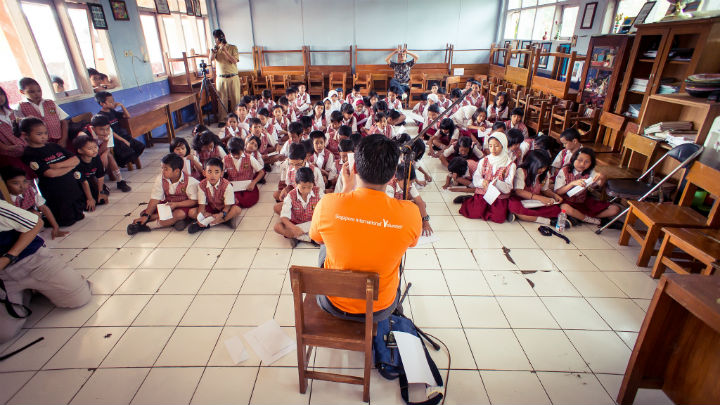ImpactAlpha, March 28 – Chile, China, Indonesia, and the United States have all scaled access and use of educational technology for a broad spectrum of students – in different ways. “Scaling Access & Impact: Realizing the Power of EdTech ” from Omidyar Network catalogs emerging themes across the countries with snapshots of “equitable edtech” in each market.
- Computer labs. At $50 million a year, the edtech market in Chile is relatively small, about the size of the country’s investment on textbooks. For three decades the Ministry of Education has used policy to ensure school-based access to digital resources, mainly through computer labs. New innovations are emerging but schools lack resources to make informed choices about what works.
- Tutoring and tests. The Chinese government has focused on access and equity to education technology infrastructure; the private sector is catering to a growing middle class. Parents in China spend a whopping $50 billion annually on after-school tutoring and test prep. Private investment in education technologies has topped $4.4 billion as companies look to exploit business-to-government edtech sales.
- Mobile apps. Business-to-consumer mobile apps from more than 30 providers are driving Indonesia’s edtech market. Better understanding is needed of edtech’s impact on the student achievement gaps between schools.
- Virtual learning. The U.S. edtech market has reached $9 billion annually. Large-scale access to edtech infrastructure is widespread but effectiveness varies. Virtual learning programs are levering widespread internet and bridging home and school learning. Decentralization of U.S. education has meant fragmented sales for entrepreneurs.
Equitable uses of education technology at scale requires scaling not just products and services but their impact, say the report’s authors. “Effective scale-up that creates impact might require considerable redesign of edtech products, services, and models of implementation to better meet the needs of diverse users.”











